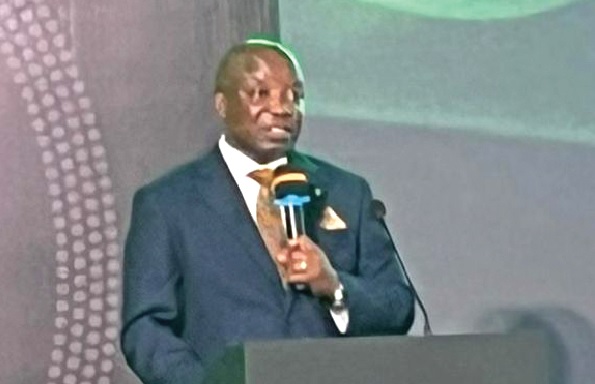
Deloitte Ghana calls for disciplined execution of 2026 Budget
The Country Managing Partner of Deloitte Ghana, Daniel Kwadwo Owusu, has said the 2026 Budget marks a good start for the economy because it offers relief after years of hardship.
He said the tax reductions and policy direction would boost confidence, but warned that the real test would be whether the government could follow through on the implementation.
Speaking at the Deloitte Economic Dialogue on the 2026 Budget, held on the theme: “Charting Ghana’s economic path: policies, progress and opportunities”, Mr Owusu said the removal and adjustment of selected taxes should ease pressure on firms and households, adding that early signals from industry showed a lift in optimism.
“The reaction we have seen so far points to a more positive mood across sectors,” he said.
He cautioned that public enthusiasm must translate into real outcomes if the country is to move towards stability.
Mr Owusu added that the country had often struggled with execution, which had weakened confidence and slowed progress.
“Ghana is still far from where it needs to be, and the success of the 2026 Budget will depend on how well the government delivers on its commitments,” he said.
Execution
Mr Owusu urged ministries and agencies to avoid delays that could undermine the expected impact of the budget.
He said the outlined measures would only work if they were implemented with discipline, consistency and strong monitoring.
He also called for deeper collaboration between the public and private sectors as Ghana worked to rebuild momentum and stimulate production.
Mr Owusu pointed to agriculture, manufacturing and technology as areas with potential to generate sustainable jobs if the right support systems were provided.
He added that clear signals would be needed in maintaining stability, improving the business environment and accelerating reforms.
“Businesses will be watching the first half of 2026 closely to see whether the government is meeting its own targets,” he said.
Growth and jobs
The Coordinating Director (Technical) at the Ministry of Finance, Samuel Arkhurst, said the 2026 Budget was anchored on growth, jobs and economic transformation as required under the 1992 Constitution.
“Growth influences how debt, deficit and revenue are assessed,” he said.
He noted that Ghana was expected to cross US$100 billion in GDP for the first time by the end of 2025, with per capita income projected to rise to about US$3,000.
He said this milestone reflected a decade-long shift in the country’s economic trajectory.
“It is possible that a bank account 10 years ago, around $2,000, now will hit about $3,000 for the very first time,” he said.
He stressed that job creation remained essential because growth without jobs would not improve living conditions.
Transformation
Mr Arkhurst said the government’s push for transformation, including the green agenda and major infrastructure projects, was aimed at building long-term efficiency and resilience.
“Growth without jobs is meaningless,” he said.
He added that the final 2026 Budget would draw on more than 200 years of combined experience from experts who contributed to its development.
According to him, the discussions leading to the final document reflected practical insights meant to guide the country’s economic path.
“We are going to do justice to the budget,” he said.